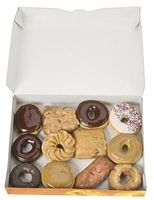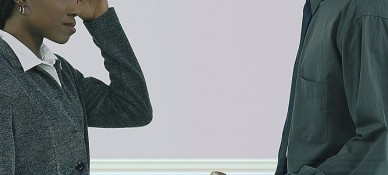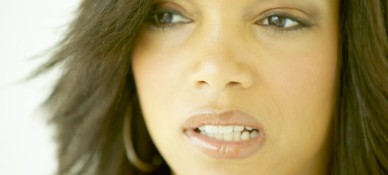Self-Examination Doesn’t Stop With Passover
Written by Susan Scott Smith
 An incident during the Feast of Unleavened Bread last year taught me lessons about the year-round process of self-examination, repentance and change.
An incident during the Feast of Unleavened Bread last year taught me lessons about the year-round process of self-examination, repentance and change.
The Spring Festival season is a very special time of year. Prior to Passover and the Days of Unleavened Bread we are exhorted to examine our spiritual condition. This examination process yields some very special insights into our human nature and brings its own poignant lessons.
But in recent years (and this is my 41st year) I have noticed another phenomenon—there are more self-examination lessons during and after the Feast of Unleavened Bread.
Phase one: deleavening
While our spiritual examination involves deleavening our spiritual house, we also deleaven our physical houses. Last year during my spring break I began deleavening the pantry, refrigerator, freezer, cupboards, sofas and vehicles. I was actually impressed with how much I had accomplished that early.
This process continued right up to the day the feast began—right down to changing the vacuum bag and emptying the central vacuum’s container.
Phase two
Then the second phase began. Here is a lesson I learned during the seven Days of Unleavened Bread.
During the feast I successfully avoided the cupcakes, cookies and donuts at work and the Subway sandwiches others ordered in for lunch. And, on the evening before our school Art Show, I carefully ordered at the Mexican restaurant the teachers frequent after school.
The owner frequently sends a token of appreciation to our table when he spots our group of teachers. We enjoyed our meal, then were pleasantly surprised to see the waiter bring a beautiful platter of sopapillas to our table.
Everyone dug in—including me. I didn’t give it a single thought until the next day. Then it hit me. I quickly Googled a recipe to make sure I was not mistaken. No mistake—sopapillas use baking powder.
What should I learn?
So, instead of just quickly asking for forgiveness and going on with my life (as I have done many times before), I decided to look a little closer. Should I learn something from this event? Self-examination is not a once-a-year occurrence. We are exhorted to examine and build godly character daily—throughout our lives.
So here are the facts I had to consider:
- Had overconfidence been involved?
- Did carelessness have a hand?
- Had I let my guard down because of this act of generosity from a friend?
- And, finally, had I gone along with crowd—my coworkers who had no idea that I avoided leaven during this particular period of time?
Transferring the lessons
As a teacher, I am always concerned about students being able to transfer lessons to real-life situations. Could I transfer these lessons?
Could this incident parallel a spiritual weakness and sin?
So here are some things I plan to keep in mind this year as a result of my mistake:
- Avoid self-confidence and look to God always to make me aware of my weaknesses and to supply the vision and ability to deal with those in a timely manner.
- Be more vigilant about familiar situations where sin can sneak up on me.
- Look closely at the impact of friends, even when they have good intentions, to see if I am letting my guard down and compromising with the truth without really thinking it through.
- In situations outside the comfort of my spiritual family, I must remember to work out my own salvation with fear and trembling. I cannot ride into God’s family on someone else’s coattails and rely on them to rescue me from trouble.
- Examine familiar routines to see where I am overlooking chinks in the armor.
Taking advantage of every learning opportunity
Have my preparations for the Days of Unleavened Bread been adequate? I know that as long as I am human, I will make mistakes. But that does not excuse me from going for gold and taking advantage of every learning opportunity along the way—before the Days of Unleavened Bread and throughout the year.
For more about the lessons of leaven and deleavening, see “What Is Leaven and What Does It Picture?”
Susan Scott Smith has been a teacher for more than 20 years and is a member of the Church of God, a Worldwide Association, in Texas.










